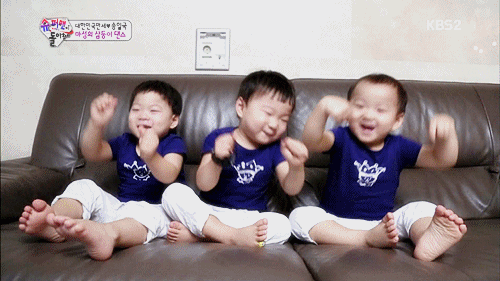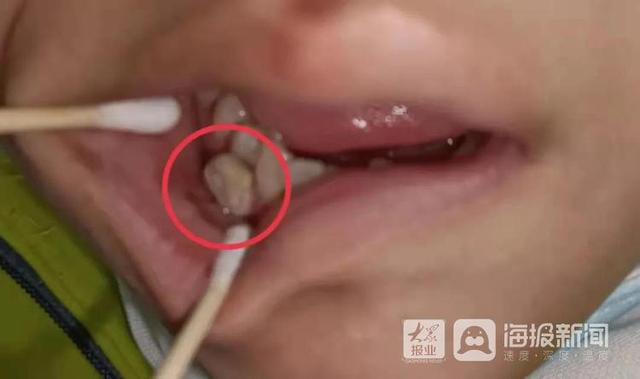英语老师口语发音(两位美女老师有趣的语音课)

随着英语的深度学习,在口语方面,相信大家都希望拥有一口流利标准的英语发音,其实这个并不难,中国人口音还算比较轻,英语交流中听不懂,很多时候归结于发音不准(尤其是元音)。
别怕,语言就是这样,多听多练多说,发音自然就准了,一起去看视频吧。
- Hello, and welcome back to English with Lucy.
大家好,欢迎回到跟Lucy学英语。
I've got another video with my friend Anna, from English Like a Native.
我和我的朋友安娜再次录制了一个视频,她来自英国本土。
- Hello.
大家好。
- And today we've got a pronunciation video for you.
今天我们为大家准备了一个关于发音的视频。
Now, Anna is originally from, where are you from?
好的,安娜来自……你是哪里人?
- From Manchester, which is in the Lancashire area, so I have a Lancashire accent, naturally.
来自兰开夏郡地区的曼彻斯特,所以我拥有很自然的兰开夏郡口音。
- Yep, so it's a Northern accent, and we are going to talk, today, about the difference between my accent and Anna's accent.
是的,所以它是北方口音,今天我们要谈谈,我的口音和安娜的口音之间的区别。
Now, you might notice that Anna actually speaks with perceived pronunciation, but this wasn't always the case, was it?
现在,大家可能会注意到安娜实际上是无意识控制的发音,但情况并非总是如此,是吗?
- No it wasn't always the case, which is why I know it's very possible for any person with an accent to change it and speak naturally, with any other accent they want.
是,并非总是如此,这就是为什么我知道任何有口音的人都有可能改变它并且能用他们喜欢的任何口音自然地发音。
So, if you're learning English, and you want to sound more English, then this is very possible for you to achieve.
所以,如果你正在学习英语,而且想要自己说的英语听起来更地道,那么这对你来说很有可能实现。
- Yep, so Anna is living proof that you can change your accent.
是的,所以安娜是活生生的例子证明你可以改变你的口音。
But today, we're going to be focusing on the difference between mine, which is a pretty standard British accent, and her original accent, which was the Northern one.
但今天,我们将专注于我的发音——非常标准的英国口音,和她的原始口音——北方口音之间的差异。
- So, from now on, I'm going to speak with a Northern accent, alright.
所以,从现在开始,我要用北方口音说话,好吧。
- I love the way she can change like that.
我喜欢她的口音可以这样来回切换。
So, this video is going to be divided in two.
所以,这个视频将分为两个部分。
I'm going to do the first four differences, and then Anna, on her channel, is going to talk about four more.
首先,我要阐明四个单词的差异,然后安娜,在她的频道,将谈论另外四个词的区别。
So, when you finish this video, head over to Anna's channel, by clicking on the link in the description box.
所以,当你看完这个视频的时候,记得前往安娜的频道,单击描述框中的链接。
Okay, let's get started.
好的,我们开始吧。
- Let's do it.
开始吧。
- So, four words are going to magically appear on the screen.
所以,这四个单词将神奇地出现在屏幕上。
ahh! (laughs)
啊!(笑)
Okay, so I'm going to read them with my accent, and then Anna's gonna read them with hers.
好的,所以我要用我的口音读它们,然后安娜会用她的口音读这几个单词。
So, the first one is bath.
所以,第一个词是“bath”。
- Bath.
“bath”。
- Then we have grass.
然后我们比较“grass”。
- Grass.
“grass”。
- And then we have laugh.
然后我们比较“laugh”。
- Laugh. (laughs)
“laugh”。(笑)
- And then, the final one, after.
最后,我们比较“after”。
- After.
“after”。
- Okay, so when I say Ah, Anna says - A.
好的,所以当我说“ah”,安娜说“A”。
- So, this is one of the biggest differences between my standard British accent, and Anna's Northern accent.
所以,这是最大的差异之一在我的标准英国口音,和安娜的北方口音之间。
- It's also important to note that if you've learned English via an American source, then you'll also be using this vowel, the a vowel, instead of the ah vowel, because Americans, they say bath, last, after, and grass, instead of bath, last, after, and grass.
同样需要注意的是,如果你已经学了源于美国的一些英语素材,那么你也会用到这个元音,元音“a”,而非元音“ah”,因为美国人,他们说“bath”,“last”,“after”,和“grass”。而不是“bath”,“last”,“after”,和“grass”。
- God, we have the accent queen right here, or is accent queen, no.
天啊,我们这里有口音女王,或者说是“口音”女王。
Okay, so we're gonna have four more words appear on the screen, and talk about the next vowel sound that changes.
好的,我们还有四个单词将出现在屏幕上,来谈论下一个元音的变化。
So, the first one cup.
首先,第一个单词,“cup”。
- Cup.
“cup”。
- Love.
“love”。
- Love.
“love”。
- Money.
“money”。
- Money.
“money”。
- And above.
以及“above”。
- Above.
“above”。
- So, you might be able to hear that when I say uh, Anna says - Oh.
所以,你可能会听到当我说“uh”,安娜会说“Oh”。
- So, we've got ah.
所以,我们理解了“ah”。
- Oh.
“Oh”。
It's quite subtle, but in a sentence, it's very, very obvious.
它们的关系很微妙,但是在一个句子里,含义的差别还是十分明显的。
- It's very noticeable, yeah.
这是非常明显的,是的。
So it is a very subtle difference, and I know many students will say, eh, it sounds the same, it doesn't.
所以这是一个非常微妙的区别,我知道很多学生会说,嗨,听起来好像没啥区别,但并非如此。
Ah, oh.
“Ah”,“oh”.
It's the shape that we make with our mouth.
这与我们用嘴巴做出的形状相关。
- Ah is more of a smile.
“Ah”更像是一个微笑。
- Ah.
“Ah”。
- It's very light, you can feel it on the top of the mouth, and oh, it feels like it's maybe more in the throat, there's more space in the mouth, and the lips are slightly rounded, oh.
它发音很轻,你可以感觉到它在你嘴巴的上方,而“oh”,感觉它可能更多的是在喉咙里,嘴巴里有更多的空间,嘴唇略微地放圆,“oh”。
- Oh.
“Oh”。
- I always think about a monkey here, oh, oh, oh.
我总是想到这里有一只猴子,“Oh”,“Oh”,“Oh”。
- Oh, oh, oh. (laughs)
“Oh”,“Oh”,“Oh”。(笑)
I can't bring myself to do that.
我不能让自己这样做。
So, I'm gonna try the Northern one, then.
那么,我会尝试下北方的口音。
Cup, love, above, is that good?
“cup”,“love”,“above”,我发音怎么样?
- That's very good.
非常棒。
- Ah, thank you.
啊,谢谢。
On to the next one, then, another vowel that changes.
好,我们看下一个,同样是元音发生变化。
I say oh, and you say.
我说“oh”,你说。
- Oh.
“Oh”。
- I say no.
我说“No”。
- No.
“No”。
- And we also have, don't.
还有,“don’ t”。
- Don't.
“Don’t”。
- And go.
和“go”。
- Go.
“Go”。
- So, oh no, don't go, becomes. - Oh no, don't go.
所以,“oh”,“no”,“don’t go”变成了。“oh”,“no”,“don’t go”。
- Oh no, don't go. (laughs)
“oh”,“no”,“don’t go”。(笑)
Okay, so this oh diphthong changes to uh.
好的,所以这个“oh”双元音变为了“uh”。
- Mm-hm.
嗯。
- Mm-hm, so I say ohh, and you say. - Oh.
嗯,所以我说“ohh”, 你说。“Oh”。
- Oh.
“Oh”。
- So it's almost like it becomes one sound in the North, whereas, in standard English, it's one vowel sound moving into a second vowel sound.
所以在北方,它几乎只是一个固定的发音,而在标准英语中,它是从一个元音变成了第二个元音。
- Yep.
是的。
- Oh.
“Oh”。
- If you'd like more information about the O sound, I have a video all about it that will be in the description box.
如果您想了解更多有关“O”发音的相关内容,我有一个关于它的视频在描述框中。
Okay, lastly, we have a couple of words that change.
好的,最后,我们来看看有几个发音发生了变化的词。
- Mm-hm.
嗯。
- They get shortened, so I would say I, whereas Anna would say.
它们的发音更加短促,所以当我说“I”安娜会说“I”。
- I.
“I”。
- So I would say I go home.
所以我会说“I go home”。
- I go home.
“I go home”。
- I go home.
“I go home”。
So, it's that uh, instead of an I.
所以,就是那个“uh”,而不是“I”。
Anna uses the word I in two different ways, sometimes she uses the short I, uh, and sometimes she makes an ah sound, as well.
安娜以两种不同的方式使用“I”这个词,有时她会用发音短促的“uh”,有时她也会发“ah”的音。
Sometimes it will be ah, and sometimes uhh.
有时候会是“ah”,有时候是“uhh”。
Okay, and the second word is my, and this becomes - My, or me.
好的,第二个词是“my”,它的发音变成了“My”或“me”。
- Yeah, so I would say I love my mum.
是的,所以我会说“I love my mum”。
- I love me mum.
“I love me mum”。
- Me mum, aw, that sounds sweet, so I love my mum.
“my mum”,哇,这听起来很甜蜜,所以是“I love my mum”。
- I love me mum.
“I love me mum”。
- So I would say, I drive my car.
所以我会说,“I drive my car”。
- I drive my car.
“I drive my car”。
- Yeah, so, quite different.
是的,差别很大。
Right, so if you enjoyed this video, head on over to Anna's channel, where part two is waiting for you.
是的,所以如果你喜欢这个视频,那么请去安娜的频道,第二部分在等你。
So, Anna's gonna talk to you about some more vowel sounds, and also some more consonant sounds that are different to standard English.
所以,安娜会和你讲解一些更多的元音,还有一些和标准英语不同的更多辅音的发音。
Okay, so that's it for me, on this channel.
好的,以上就是今天我在这个频道上要讲的。
Don't forget to connect with me on all my social media, all of our social media.
不要忘记可以通过所有的社交媒体联系我,是我俩所有的社交媒体上。
- Viewed, viewed, viewed.
看,看,看。
- Which is all here, and I'll see you back on English with Lucy for another video very, very soon.
这就是今天的全部内容啦,很快会再见到你们在露西英语的另一个视频很快哦。
- Turrah.
啊哈。
- Turrah.
啊哈。
(laughs)
(笑。)
Hello, welcome to English with Lucy.
您好,欢迎来到露西英语。
- Above, no, above. (laughs)
以上,不对,是“以上”。(笑)
- Up, and I look down, like, oh, I look like I'm looking at your tits. (laughs)
起来,我往下看,就像,噢,我看起来像是在看你的乳房。(笑)
– Crumpets
松饼
- Two great big pamphlets.
两本伟大的小册子。
- Don't.
别。
- And go, (laughs) and go.
然后,(笑)然后说“go”。
So I would be, I go home, (laughs) sometimes it would.
然后,(笑)然后说“I go home”。有时就会这样发音。
- I love, God.
“I love”,天哪。
- I love my mum. (laughs) - I love my mum.
“I love my mum”。 (笑) - “I love my mum”。
- Little coy.
还有点腼腆。
- Ohh, okay.
好吧。
Once they're changing.
一旦发音改变了。
That are different-- okay, that's enough, that's enough.
将会与众不同- 好吧,够了,不说了。
,免责声明:本文仅代表文章作者的个人观点,与本站无关。其原创性、真实性以及文中陈述文字和内容未经本站证实,对本文以及其中全部或者部分内容文字的真实性、完整性和原创性本站不作任何保证或承诺,请读者仅作参考,并自行核实相关内容。文章投诉邮箱:anhduc.ph@yahoo.com






